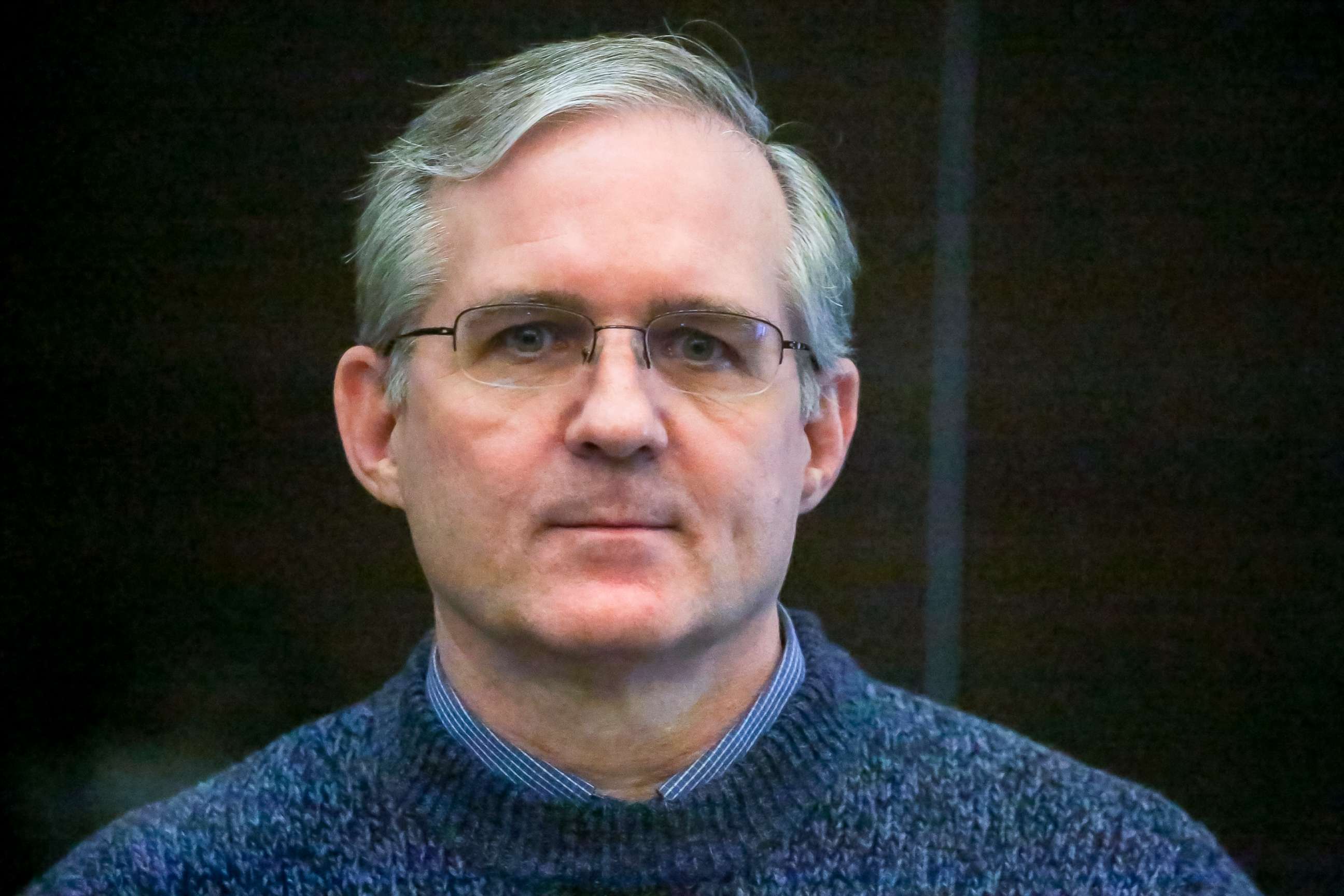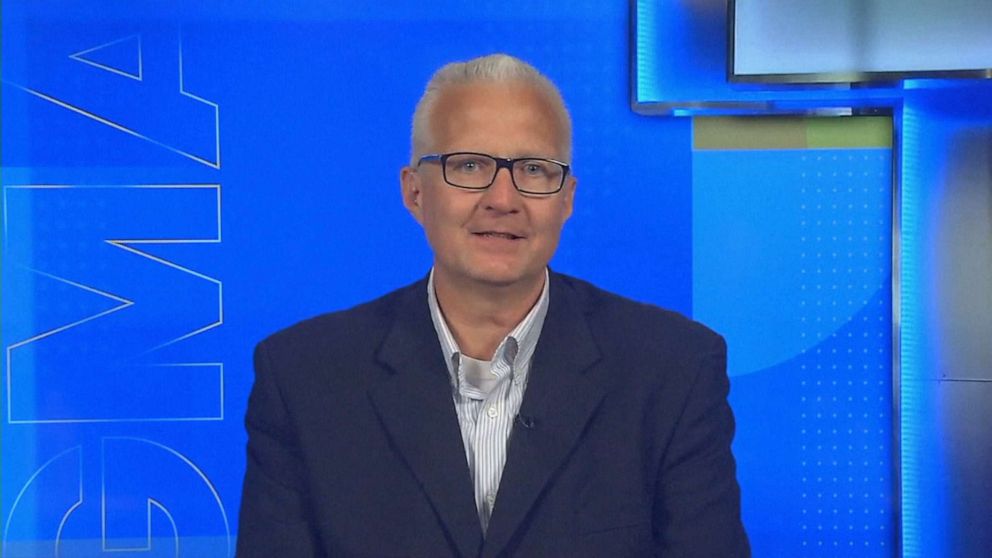Paul Whelan's brother says he's feeling less hopeful after WSJ reporter was detained by Kremlin
"I think it's not going to get easier with a second American charged."
The family of Paul Whelan, who has been imprisoned in Russia for four years on espionage charges, said Monday he feels "abandoned" by the U.S. and that "his resilience is shaken" in the wake of Russia's arrest of Wall Street Journal reporter Evan Gershkovich, who has been charged with espionage.
Whelan, 53, a businessman and former U.S. Marine, was arrested in 2018 and convicted of espionage in 2020. The U.S. has declared him and Gershkovich, who is on trial in Russia, "wrongfully detained."
Since Whelan's arrest, Russia detained and released two Americans who were also declared "wrongfully detained" -WNBA player Brittney Griner and former Marine Trevor Reed.
In a Friday phone call with his parents, Paul Whelan said "he feels as though the U.S. government has abandoned him," according to his brother David.

David Whelan spoke more with ABC News Live Monday about the situation.
ABC NEWS LIVE: First, I just want to ask you, when we talk about his resilience being shaken. What do you mean by that? Tell us what kind of emotional state that Paul is in.
DAVID WHELAN: I think from the very start of his detention back in 2018, he has tried to maintain hope and he has certain things that he does every day to create a routine and to keep a mental positivity. And I think that the latest detention of an American by the Kremlin has shaken that. So…he's not only less hopeful, but I think really concerned that he may be going back through a process that has happened a number of times now, where an American is brought home because of concessions the U.S. government makes. But Paul doesn't come home.
ABC NEWS LIVE: Are you and your family planning on interacting differently at this point with the State Department?
WHELAN: I think we are. Elizabeth [Whelan, Paul and David's sister] is going to take a bit of a pause on her meetings with them. I think she's finding that there aren't fruitful outcomes to the discussions that they've been having. We don't get the sense that there are creative strategies being brought to bear on Paul's case. And frankly, the family of a wrongful detainee has limited resources. We take days off from work. We pay to travel to Washington, D.C., to do advocacy. There's a cost, and I think we've decided that for now, we need to hold off until we can see better progress.
ABC NEWS LIVE: Why do you think that Paul doesn't get the attention like Brittney Griner, Trevor Reed and now Evan Gershkovich?
WHELAN: It's hard to know. The special presidential envoy for hostage affairs last week said that he didn't know why Paul's case was harder, [and] why the Russian government wasn't letting him go. And I think even the people in the State Department know it's hard for us to understand. It's really too bad. I think that there was an opportunity to bring him home in 2020 and the U.S. government decided not to do that, and then since then, it's just become very difficult. And I think it's not going to get easier with a second American charged with espionage by the Kremlin.

ABC NEWS LIVE: Have you and your family discussed what your next steps might be? I know that you said that your sister is now saying that she's going to maybe slow down that communication with the State Department. But now, going forward, is there another strategy?
WHELAN: There isn't for our family. I mean, a lot of it is hoping and waiting and trying to keep Paul's spirits up so that he can survive as long as he can. Unfortunately, he may have to survive for 16 years, the entirety of the sentence, and we hope that that's not the case. We want to keep our parents' spirits up as well, because, of course, they get disappointed when they hear Paul becoming despondent on the phone.
So, I think we will just continue to try and focus on what we have to do, which is to support Paul and to support our parents. But it would be ideal if the State Department would also engage and put the pressure on that they have said that they would do and try and bring Paul home.

ABC NEWS LIVE: You mentioned the potential for him potentially having to serve out that 16 years. Is there a part of you that's given up hope?
WHELAN: No. I mean, I think you always have to keep some hope. But it would be impossible to continue either as a family member or as Paul if you gave up hope. I think that's why we see some wrongful detainees attempt suicide when they're in detention or being held hostage. And fortunately, Paul hasn't gotten to that point. So, we will try and keep him as mentally healthy and physically healthy as we can until he's able to come back.




